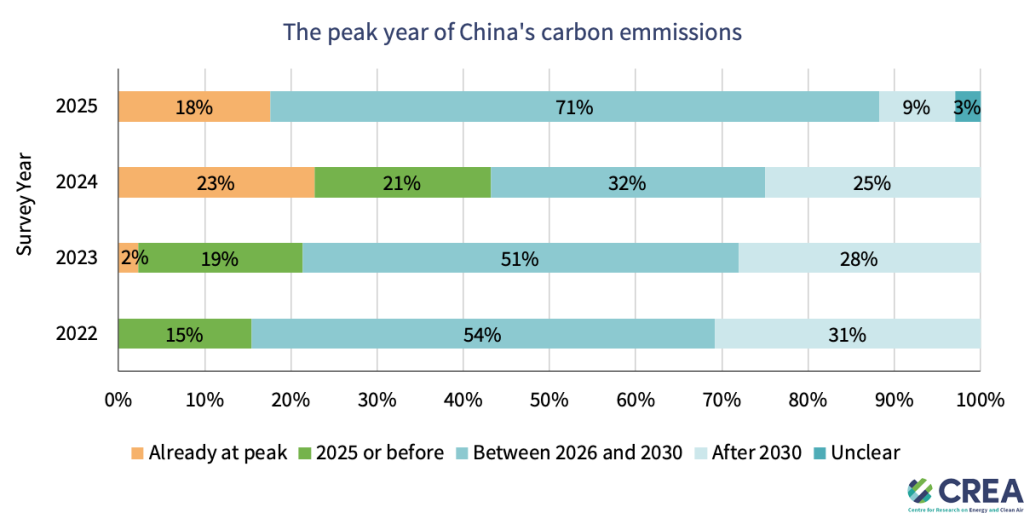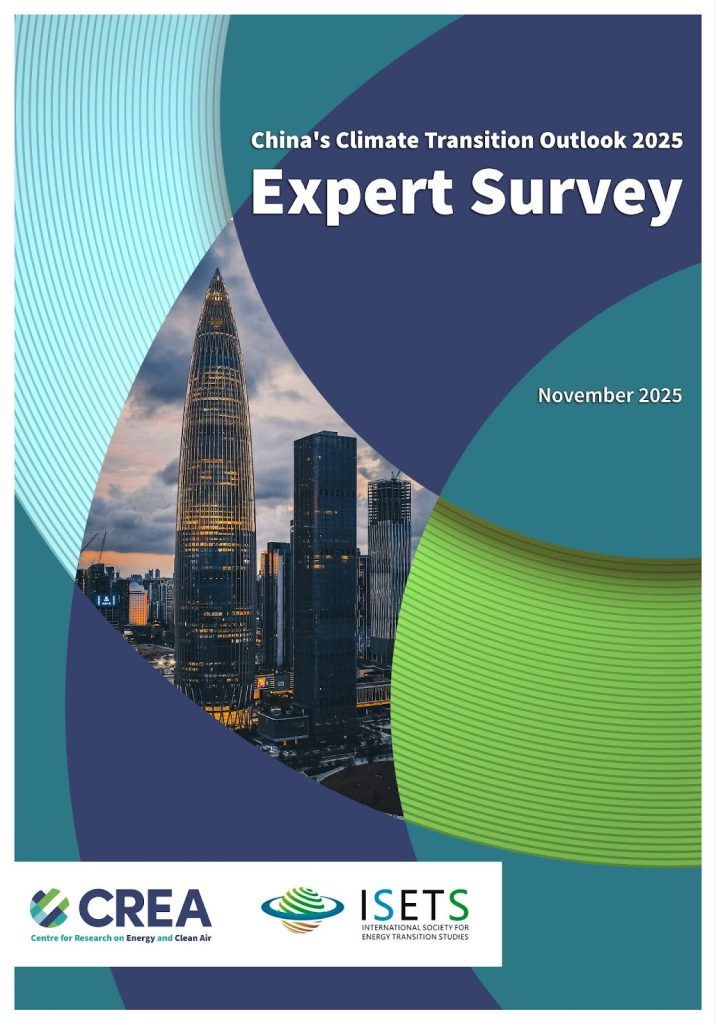As China’s “carbon peaking and carbon neutrality” agenda enters its fifth year, the Centre for Research on Energy and Clean Air (CREA) and the International Society for Energy Transition Studies (ISETS) conducted their annual expert survey to systematically summarise current progress and assess future trends. For the fourth annual edition of CREAʼs Chinaʼs Climate Transition Outlook, CREA surveyed a pool of 68 experts representing diverse specialisations in the fields of climate and energy. The survey targets experts, scholars, and practitioners to compare data since 2022, capture changes across key sectors and critical issues, and provide evidence-based insights and decision-making support for China’s “dual carbon” strategy.
The survey’s key findings include:
- More than two-thirds (69%) of experts believe China will significantly or partly overachieve its new climate targets for 2035, which aim to reduce emissions by 7-10% compared to peak levels, showing China can indeed achieve much higher reductions.
- Yet, uncertainty about China’s short-term energy transition and industrial decarbonisation has increased following the announcement of the conservative 2035 NDC targets, amid economic uncertainties and geopolitical volatility.
- Although emissions have fallen since March 2024, experts are less certain that China will peak in 2025, expecting a peak later in 2028. This also reflects the reluctance of the government to adopt a peaking year for its 2035 targets and could leave more room for emissions to grow.
- Still, the majority of experts (99%) are confident that China will achieve its 2030 targets, implying no emissions growth over the coming five years. That’s even as the country is currently far off track for its interim 2025 targets on carbon intensity and controlling coal consumption growth.
- The majority (80%) of experts believe that emissions in the steel and cement sectors have already peaked or will do so before 2030, despite a lag in China’s steel decarbonisation.
- Despite economic uncertainties, experts are more confident that the current and future domestic economic and geopolitical environment will accelerate the short-term energy transition and strengthen the importance of the dual carbon goals, highlighting the importance of clean energy sectors for the economy.

Figure 1 — The peak year of China’s carbon emissions
